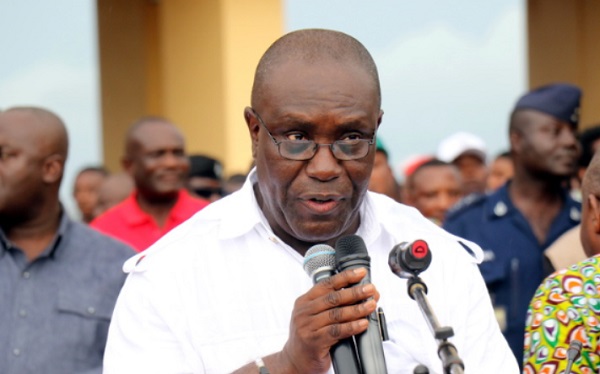The Secretary-General of the Trades Union Congress (TUC), Dr Yaw Baah, Ghana, has called on the government to involve the leadership of Union bodies in negotiations and management of public agreements.
He said the Union body had experts who could work with government in negotiating contracts on behalf of the country to ensure value for money.
Dr Baah made the call at a TUC seminar on “Negotiation and Management of Public Agreements in Ghana - The Role of the Trade Unions”.
He said the country was endowed with natural resources but poor contract negotiations had affected its fortunes in terms of development.
“Ghana has been mining gold over 120 years, but foreigners are making lot of money to the detriment of the citizenry. There is poor road infrastructure in most of these mining communities coupled with hunger and poverty,” he stated.
Dr Baah called on Civil Society Organisations and other bodies to join the TUC to lead the process of creating the political will for government to involve key stakeholders in negotiating agreements.
He cited the Volta River Authority agreement in the 1960s, which was reviewed by Ghanaian experts like Professor George Akilakpa Sawyerr, an Academia, who got a better deal for the country.
He expressed disappointment over Parliament’s alleged approval of some contract documents without due diligence.
“It is worrying that some of these Parliamentarians approve these contracts because they do not understand the technicalities involved in the document while others do not have enough time to peruse the voluminous documents,” he said.
The Director, Labour Research and Policy Institute, TUC-Ghana, Dr Kwabena Nyarko Otoo, who presented a “Research Analysis of Negotiation and Management of Public Agreement in Ghana,” noted that from 2011 to 2016, the country had experienced extended blackouts - “dumsor”- largely due to generation problem of higher demand oversupply of energy.
The generation, he noted, had since increased far in excess of energy demand with current projections being that no additional power generation would be needed until 2027.
But the energy sector faced monumental challenges of the unreliability of power, mounting debts, rising tariffs and low investment, Dr Otoo said, and called for capacity building for government appointees on contract negotiations.
Latest Stories
-
Suspend implementation of Planting for Food and Jobs 2.0 for 2024 – Stakeholders
5 mins -
Parkinson’s disease no longer confined to the elderly – Public Health Physician, Dr Momodou Cham warns
10 mins -
Persons living with Parkinson’s disease appeal for support as they face stigmatization
23 mins -
36-year-old-trader sentenced for stealing employer’s money
26 mins -
9 signs you’re falling in love with someone who thoroughly enjoys emotional manipulation
33 mins -
Catholic Diocese of Keta Akatsi hosts Parkinson’s support group meeting
35 mins -
Wa Naa appeals to Akufo-Addo to audit state lands in Wa
58 mins -
5 secret ways people use ‘I love you’ as a form of manipulation
1 hour -
The most important question to ask yourself
1 hour -
Department of social welfare sensitises residents of Nabdam on child protection
1 hour -
Ghanaians must assess the quality of political leaders presented – Asah-Asante
1 hour -
Ashanti Regional Minister demands withdrawal of ‘fraudulent ECG bills’ sent to his residence
2 hours -
Delta Air Lines deploys new Airbus on Accra-New York route
2 hours -
PPDC spearheads Africa’s AI development at DRIF24 forum
2 hours -
Ripoti App launched to empower journalists, others to tackle digital rights violations in Africa
2 hours

